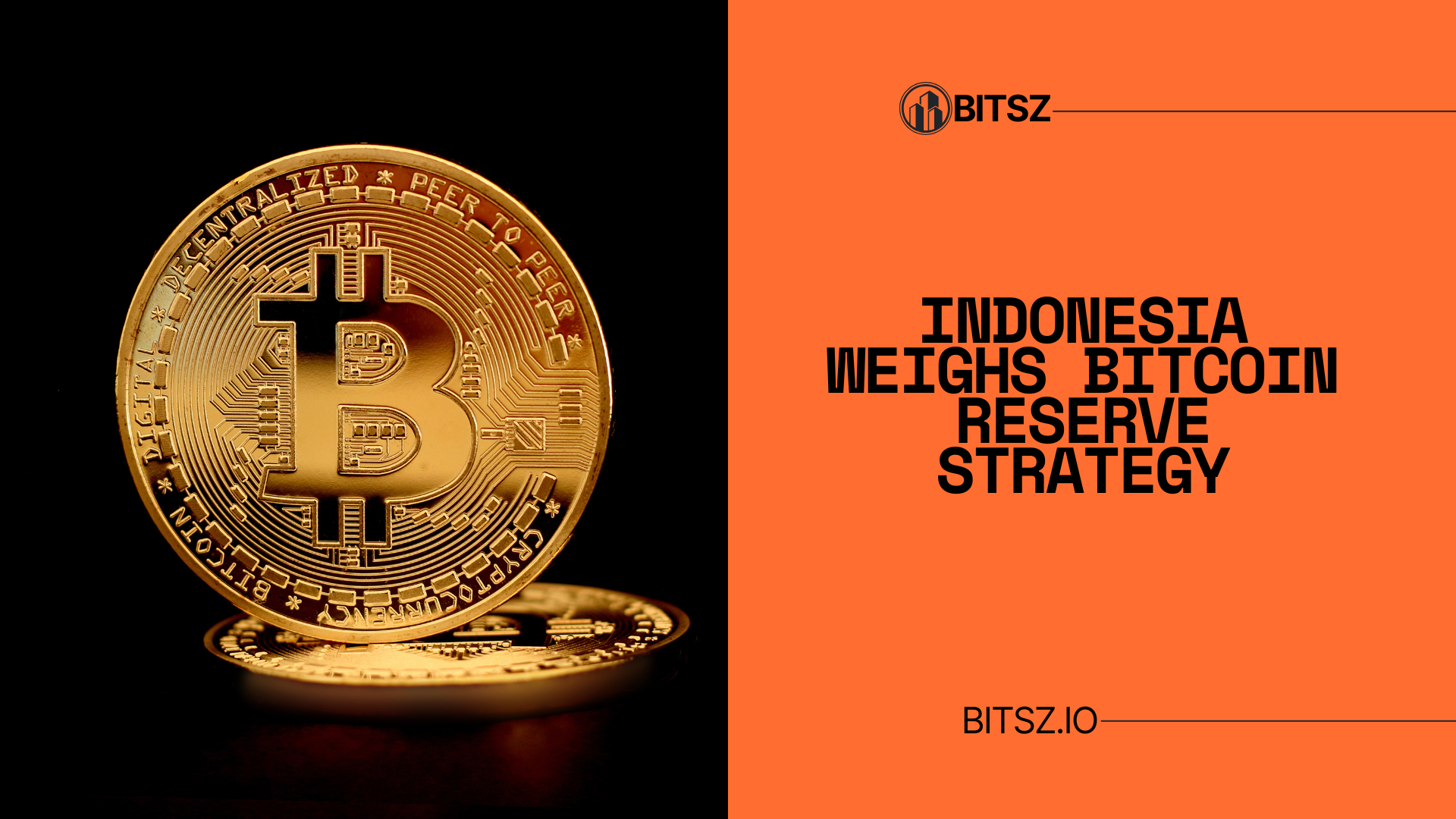
Indonesia is examining whether Bitcoin could play a role in its national reserves, according to a local industry group that says it presented the idea at the Vice President’s office. The group, Bitcoin Indonesia, described the discussion as part of a broader pitch that included state-linked Bitcoin mining and national education programs. While the talks signal rising policy interest, no official policy or allocation has been announced by Bank Indonesia (BI), the Ministry of Finance, or the Financial Services Authority (OJK).
Cointelegraph first reported the outreach, quoting Bitcoin Indonesia’s summary of the meeting and its claim that officials “were bullish” on exploring potential reserve use cases and domestic mining. The local advocates framed Bitcoin as a long-term strategic asset and suggested mining could be aligned with Indonesia’s energy resources. Again, these are proposals, not decisions.
What’s being explored — and by whom
- National reserve angle: The advocacy group says it discussed holding BTC within Indonesia’s reserves and/or mining as a reserve strategy, positioning Bitcoin as a macro hedge and a technology bet. Officials have not publicly endorsed any allocation size or timetable.
- Domestic mining concept: The pitch referenced leveraging Indonesia’s energy mix for mining; details such as ownership structure, procurement, and off-take are not public.
Several secondary outlets amplified the report, but none provided evidence of a formal policy move beyond the initial meeting claim. For now, this remains an exploratory conversation initiated by industry advocates.
How this squares with Indonesia’s 2025 rulebook
Any reserve strategy would need to navigate three pillars of Indonesia’s current framework:
- Payments are still off-limits. Bank Indonesia maintains that crypto assets are not legal payment instruments in Indonesia. The ban on using crypto for payments dates to 2017–2018 guidance and subsequent enforcement statements, even as trading is legal. A Bitcoin reserve at the sovereign level would not, by itself, change the domestic payments prohibition.
- Oversight shifted to OJK in 2025. As of Jan. 10, 2025, regulatory supervision for crypto-asset trading moved from the commodities regulator Bappebti to the Financial Services Authority (OJK) under Law No. 4/2023 and follow-on regulations (e.g., POJK 27/2024). This transition reframes crypto as a financial-assets domain and would shape any institutional exposure or custody structures considered by state bodies.
- Taxes just went up (and changed). Indonesia’s Finance Ministry approved a new crypto tax regime effective Aug. 1, 2025, raising the seller-side tax on domestic exchange trades to 0.21% (from 0.1%), setting 1% for overseas platforms, and eliminating VAT on buyers; VAT on mining rises to 2.2%, and special mining income tax is repealed in favor of ordinary income taxation starting 2026. Authorities emphasized that crypto is tradeable but not a means of payment. Any state mining or reserve program would sit in this tax and oversight context.
What a Bitcoin reserve would mean — hypothetically
Pros policymakers might weigh:
- Diversification and optionality. A small BTC allocation could diversify reserves beyond FX, bonds, and gold, and align Indonesia with emerging digital-asset market infrastructure trends. (Proponents cite long-run scarcity and global liquidity.)
- Industrial policy via mining. State-aligned mining could monetize stranded or flexible power and build domestic expertise in data-center and security-hardware operations.
Risks and open questions:
- Volatility and drawdown risk. BTC’s historical drawdowns (>50%) complicate reserve management relative to gold or short-duration sovereign debt.
- Governance and custody. Any reserve exposure would need robust legal custodianship, accounting policies, and transparent governance to avoid politicization. Under OJK’s framework, who could safekeep a sovereign BTC position, and how would valuation and auditing work?
- Payment-policy optics. Maintaining the crypto payments ban while holding BTC at the sovereign level could be seen as inconsistent unless clearly framed as a non-payments, reserve diversification policy.
Why now?
Indonesia’s interest comes as multiple countries reassess digital assets within financial-market plumbing and reserve thinking. Domestically, crypto trading has scaled: 2024 transaction value exceeded 650 trillion rupiah (~$39.7B) with 20+ million exchange users, according to regulator data cited by Reuters. The 2025 tax overhaul and OJK handover signal a shift from “commodity-style” trading to a financial-asset regime, which may make institutional conversations—like reserve management—more thinkable, even if still distant.
What’s credible—and what isn’t—at this stage
Credible:
- A meeting occurred between a local Bitcoin advocacy group and the Vice President’s office, where reserve use and mining were discussed. (Source: Cointelegraph’s report from the group’s own account.)
- Indonesia’s payments ban remains in force; OJK now regulates crypto trading; new taxes took effect Aug. 1, 2025.
Not established:
- Any official decision to buy or mine Bitcoin for state reserves.
- Any approved budget, allocation size, timeline, or custody/provider details. (No primary statements from BI, OJK, or the Finance Ministry confirm policy.)
What to watch next
- Official statements from Bank Indonesia, OJK, or the Finance Ministry clarifying whether a feasibility study has been commissioned.
- Parliamentary or Cabinet references to digital-asset reserves in budget papers, energy-policy documents (if mining is considered), or sovereign-asset management guidelines.
- Infrastructure pilots (e.g., state-linked data centers, energy MOUs) that could precede any mining program.
Bottom line
Indonesia is exploring whether Bitcoin has a place in sovereign strategy—at least enough to host a meeting about it. But exploration is not policy. For now, the country’s crypto stance is unchanged: legal to trade (under OJK), not legal to use for payments (under BI), and newly taxed under a 2025 regime. Until authorities publish a formal plan, talk of a national Bitcoin reserve should be treated as early-stage advocacy—interesting, potentially significant, but not yet a state commitment.